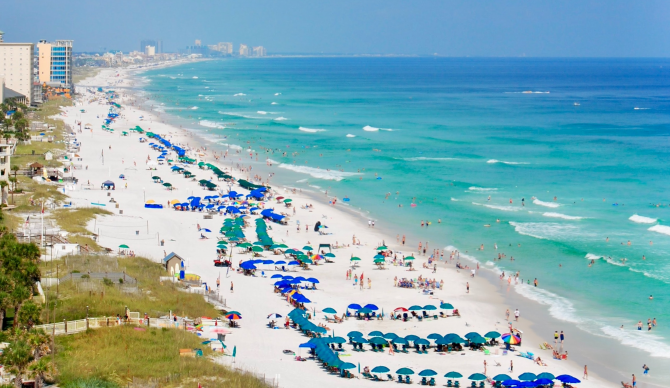
Photo: Sophia Simoes // Unsplash
The planet has been on a climate roller coaster this year, from wrapping up a Triple-Dip La Niña winter to being thrust straight into an El Niñ0 that began earlier than experts expected. The fact that the latter is predicted to take us through the remainder of 2023 has had experts preparing us for seasonal climates to reach the extreme limits of what we’re typically used to. A massive heat wave in the U.S. is on the horizon, for example, but that feels par for the course in the full swing of summer.
Ocean water temperatures pushing toward triple digits, however, doesn’t sound normal at all. And this is the case in Florida where the coolest water in the state has dipped into the low 80s (Fahrenheit). The highest water temperatures have been in the 90s.
“We didn’t expect this heating to happen so early in the year and to be so extreme,” said Derek Manzello, a coordinator at the National Oceanic and Atmospheric Administration’s (NOAA) Coral Reef Watch. “Ocean warming is only getting worse, bleaching events are getting more frequent, so it’s really an existential crisis for coral reefs as we know them.”
Experts like Manzello warn that coral reefs are in significant danger if these water temperatures persist. But it’s not just Florida. Water temps in the Southwest Atlantic and across the Gulf of Mexico are reportedly about four to five degrees higher than normal while as much as 40 percent of our oceans are experiencing some form of an ocean heat wave. But still, a hot tub-like 90 degrees is a head-turning realization when it comes to a dip in the ocean. Coral are particularly vulnerable to these kinds of changes and bleaching can occur with temperature changes of just one degree Celsius sustained over a period of about four weeks. According to the NOAA, approximately 25 percent of marine life depend on reefs at some point in their life span, so you can see how the impacts can tally up quickly.
“I do lose sleep over it,” Andrew Baker, a professor of marine biology at the University of Miami, told The New York Times. “But I don’t want to write the eulogy just yet.”
The naturally-occurring El Niño has many thinking water temps in this part of the world won’t get relief any time soon. In 2016, El Niñ0 scorched the Great Barrier Reef, which lost half of its corals during the event, according to Liv Williamson of the University of Miami’s Coral Reef Futures Lab, who gave a 90 percent chance for “major bleaching.”
“We are already receiving reports of bleaching from Belize, which is very alarming this early in the summer,” Williamson says. “This is only July, this heat will just keep accumulating and these corals will be forced to deal with dangerously warm conditions for much longer than is normal.”

